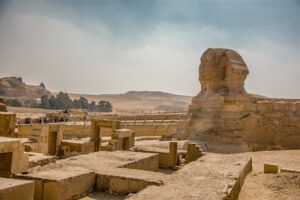Ancient Egypt and fragrance traditions
By Nicolas Frank
If you go in search of traces, you will find that perfume originates from religious rituals. By slowly burning herbs or woods, fragrant smoke was created. Now some of you may think directly of a visit to a cathedral and it your noses already plays around the incense. But the Christians were not the first to use incense to fog their sacred spaces. The first mentions of fragrance are found in ancient Egypt.
In the times of the pyramids, resins, flowers and anything that produced a pleasant scent were burned in honor of the deities. This tradition spread through the trade routes to the Romans. Of course, the precious substances were reserved for the gods, but there was one who discovered the pleasure of it for themselves early – Cleopatra.

Many myths are entwined around Cleopatra. One legend says she was beautiful, perhaps the most beautiful woman the earth has ever seen. Then again it is speculated that it was not her appearance that brought her opponents to their knees, but her incomparable love skills. But you’ve certainly heard all this before. Certainly also about the fact that she bathed her body in gallons of precious milk. But milk alone did not put her in the top ten of divine seductresses. It was also the precious perfumed ointments she used to groom herself. And that was the birth of perfume as a cosmetic product… well… maybe not exclusively. But the idea that this impressive woman contributed her part to the perfume culture is a very nice one.
For some time now, scholars have been trying to revive the scent of Cleopatra. Due to multiple mentions in various traditions, it is now believed to be Afarsenom. It seems that Israeli researchers have actually succeeded, but there can be no talk of a revival, because the result was apparently very disappointing. Is the once legendary scent simply no longer attractive to today’s noses, or should researchers reassure themselves that they just don’t have trained noses and leave the field to the professionals?
Perhaps we will learn more about this someday. I remain curious and hope you do too.
Follow us on social media for more fragrance news, behind-the-scenes insights and spotlights on the most popular luxury perfumes. If you need help, feel free to drop us a line at [email protected].
See you soon, your PAFORY team 🤍